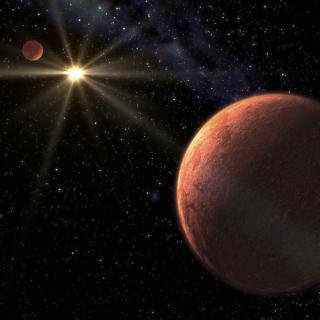Bibcode
Reyes García-Talavera, M.; López, R. L.; Marco, J.; Montilla, I.; Núñez, M.; Patrón, J.; Puga, M.; Rodríguez, L. F.; Rosich, J.; Simoes, R.; Tubío, O.; Béjar, V. J. S.; Basden, A.
Bibliographical reference
Proceedings of the SPIE, Volume 10703, id. 107030C 11 pp. (2018).
Advertised on:
7
2018
Citations
1
Refereed citations
1
Description
The GTC AO system designed and developed during the last years is based
on a single deformable mirror with 21 x 21 actuators, conjugated to the
telescope pupil, and a Shack-Hartmann wavefront sensor with 20 x 20
subapertures, using an OCAM2 camera. The GTCAO system will provide a
corrected beam with a Strehl Ratio (SR) of 0.65 in K-band with bright
natural guide stars. This paper reports the updated status of the
integration of GTCAO in the IAC laboratory, and the results obtained in
the first tests carried out to evaluate the performance of the system,
before the complete characterization and the verification of the
requirements. The wavefront sensor verification has been completed, and
it has been integrated in the optical bench together with the corrector
optics including the CILAS deformable mirror. The calibration system,
also mounted on the optical bench, includes light sources used to tune,
characterise and calibrate the whole system. It also simulates the
atmospheric turbulence and the telescope, delivering an aberrated
wavefront used to debug the whole control system, and to test the real
time control software, the servo loop and different servo control
strategies. Finally the Test Camera has been also integrated at the
science focus to evaluate the performance.
Related projects

Very Low Mass Stars, Brown Dwarfs and Planets
Our goal is to study the processes that lead to the formation of low mass stars, brown dwarfs and planets and to characterize the physical properties of these objects in various evolutionary stages. Low mass stars and brown dwarfs are likely the most numerous type of objects in our Galaxy but due to their low intrinsic luminosity they are not so
Rafael
Rebolo López